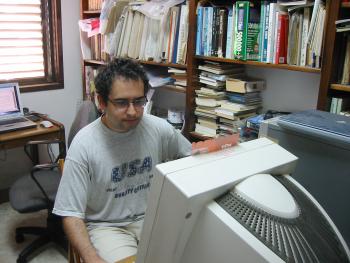I've generally been using GCC (= The
GNU Compiler Collection) exclusively for
compiling Freecell Solver
under Linux for its constant development. For a time, I used to compile the
Windows binaries using Microsoft Visual C ("cl.exe") and a really hideous
batch file I wrote for the purpose (so it would work on the Technion's
computers). Lately, however, I've switched to compiling using
MinGW on Windows, which is gcc based.
A few weeks ago, I decided to try out other compilers and see what they
had to offer. I
downloaded the proprietary icc (Intel's C Compiler), which is
gcc-compatible and has a Linux trial version. It was a huge download and ended
up occupying a lot of space on the hard-disk. At first, I could not get it to
emit working code, but after messing a little with my makefiles, I was
successful. It is about the same speed as gcc for compiling my ANSI C program
(maybe a bit slower), and generates somewhat faster code.
.
icc kept emitting many of the so-called "remarks" which I eventually took upon
myself to eliminate. This improved the quality of my code. But it worked
properly with these many remarks being emitted. After installing icc,
msec (the Mandriva security mechanism) complained about world-writable files
in the icc installation, so I reported it on the Intel forum.
The next compiler I tried was tcc, the
Tiny/Turbo C Compiler. The version in the Mandriva repositories was
old and did not yield a working binary, and so I tried upgrading to version
0.9.24 and then to the git version, but none of them worked either. I
reported this attempt to the tcc mailing list.
I also tried icc's -fast flag, which is supposed to make the output faster,
but it actually made the binaries slower (much slower than even gcc).
However, later on, after cleaning up my makefile, tcc produced perfectly
working binaries. I don't know what the problem was, but it was solved. (I
reported that in a reply). Compiling with tcc is much faster than with gcc,
but the resulting code is much slower than gcc's, and occupies more space on
the disk.
The next compiler was TenDRA. Now
the homepage a 403 (and still does) and so I went on Freenode and asked. I
eventually did:
$ svn co http://svn.tendra.org/trunk/
Only to discover that
http://svn.tendra.org/trunk/tendra/INSTALL is
empty except for a reference to the Trac web-site (which was also off-line).
So I needed to use the guidance of the people from Freenode's #tendra to build
it.
In the process, I had to install bmake,
because that's the only make
that would compile TenDRA. The ./configure in the standard distribution
failed to work here, but I was able to find an .src.rpm which compiled
and installed fine. The TenDRA boot process also complained about one of my
system's header which had a list or enum with a trailing comma, and I had
to manually fix the code.
But I was able to build TenDRA and install it, and it was able to compile
a working program. Before it did, though, I had to fix many compilation
errors it reported, as TenDRA is stricter than gcc. It also didn't recognise
my use of strdup, and I had to specify -Ysystem for it to work (the previous
-Y's I tried did not work properly). But then it worked.
TenDRA generated larger and slower executables than gcc but it worked.
I failed to get lcc
(which isn't strictly open source ) and
pcc (which is open source ) to
either compile or produce working code. Seems like neither of them are ready
for prime time - at least not here on Mandriva Linux Cooker.
So after a lot of frustration, my experiments with different compilers
were mostly successful. As a result, my code is more strict, and better
tested. So I guess it was worth it.
